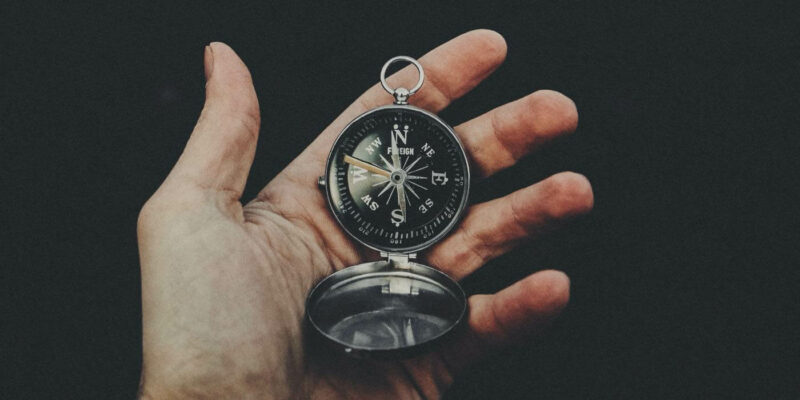Most bits of advice out there for how to be less anxious share one fatal flaw…
They alleviate anxiety in the short-term, but increase it in the long-term.
For example:
- Distraction will help you feel less anxious in the moment, but by immediately avoiding it, you’re teaching your brain that it’s a threat—which means you’ll be anxious about being anxious next time.
- Deep breathing can be useful as an exercise, but when used as a tool to alleviate anxiety in the moment, it teaches your brain that it’s not okay to feel anxious, which can lead to feeling ashamed about feeling anxious—which only makes your anxiety more intense long-term.
If you struggle with chronic anxiety and want to feel less anxious for good, try these instead:
- Stop calling yourself an anxious person. How we think determines how we feel. And how we repeatedly think determines how we consistently feel. If you’re constantly labeling yourself as “an anxious person” or “a worrier” is it any wonder that you constantly feel that way? How you talk to yourself is a choice. Take responsibility for using kinder, more balanced self-talk.
- Ask for what you really want. If you struggle with chronic anxiety, there’s a good chance you’ve fallen into the following habit: You avoid asking people for what you really want. Maybe you’re afraid of how they’ll react… Maybe you’re afraid to admit to yourself what you really want… Regardless, chronic anxiety will not go away until you learn to be more assertive.
- Don’t get into conversations with your worries. Everybody worries. But just because you have a worry doesn’t mean you have to keep worrying. Practice saying no to unhelpful conversations with yourself by training your mind to observe without engaging.
- Less coping, more tolerance. When you immediately try to avoid or get rid of anxiety with coping skills, you make yourself more anxious in the long-run because you’ve trained your brain to fear anxiety itself. Instead, practice accepting your anxiety and being tolerant of it. To free yourself from anxiety, you must be willing to have it.
- Say no a lot more. Very often, chronic anxiety is a symptom of poor boundaries. And unless you address the root cause, you can expect your anxiety to keep popping up—not because something’s wrong, but because something’s right… your anxiety is sending you a message you desperately need to hear.
- Exercise more frequently. There are approximately 3,457 reasons why exercise is good, including for anxiety. But here’s one most people don’t realize: Exercise boosts your sleep drive, which leads to higher quality sleep. And when you consistently sleep well, it’s much easier to manage worry and anxiety in a healthy way.
- Stop looking for meaning in everything. Uncertainty is uncomfortable. But if you’re in the habit of always avoiding it by insisting that “everything means something,” you will become increasingly fearful of even small bits of uncertainty. And because life is full of uncertainty, you will become full of anxiety. Practice accepting uncertainty instead of always trying to control it.





19 Comments
Add YoursWHAT about when your anxiety is a side effect of medication you have to take?
I don’t like this. Specifics. What do I do?..by the numbers
Love the part about exercise! It’s such a difficult thing to do when we feel anxious or depressed… but it is a CRITICAL part of getting on our healthy journey! Thanks for your advice!
I’m sick of being told to exercise or go walking. I would love to, but can’t because of all the surgeries, broken bones, screwed up procedures, etc.
Avoid caffeine?
Caffeine creates something but not anxiety.
It creates your heart to beat faster.
It creates a reaction.
It creates a headache if you’re unlucky to have this susceptibility but does not create anxiety.
You may be anxious because of all these symptoms because you aren’t aware of the reason.
You feel quite I’ll.
Drop the strong coffee and tea and over the counter medication for the headache.
Some of us are more sensitive to caffeine.
Hope this makes sense,
Made a lot of sense to me. Found this article helpful. Just knowing that that anxiety is a normal part of life reduced the temperature of my anxiety substantially. Also anxiety could also be helpful in pointing us to issues we need to address. Thanks very much
You are on the right road.
Plenty of info about anxiety and addressing it.
I’m glad I made sense and thank you for the reply.
Good luck with the issues as we all have some, so don’t worry
and try too seek your own answers to your niggling anxiety.
It can be very satisfying as well as esteem boosting and rewarding. Don’t lose heart if it’s difficult as it’s no reflection on you. Reasons for anxiety can be illusive and hard to pinpoint.
several of these were good ideas. (4, 6, 7)
…
some were ridiculous
(left unspecified to protect the innocent haha )
I sometimes had panic attacks at work, it was very embarrassing. I finally talked to a doctor who prescribed propranolol, a beta blocker. It stops the physical things–the rapid heartbeat, the gasping to draw a breath, the sweating, etc. I still felt nervous standing up to deliver a speech but it made it so much easier to get through it.
This is heavy on ACT, acceptance and commitment therapy, it has been very helpful to me. It can be slow to rap your mind around the ideas, but life changing when you begin to see it. It builds on itself the more you study it the more it makes sense and comforts you. I like your comments.
Bookmarked! – Thank you for this nice list.
When I get anxious, I step back from what triggered it, and I ask myself if it will matter in 1 year, 5 years, or 10 years. Whatever triggered it becomes entirely irrelevant over time.
As Mark Twain said: “I have spent most of my life worrying about things that have never happened.”
~ Mahalo & Aloha
Point #2. is the one for me. I know plenty of people who will ask “are you busy?) instead of just getting to the point. My mother would call it “pussy-footing” around the subject. Get to it and get it done, hence less anxiety.
Thank you.
Exercise is a definite remedy for me. Also, eliminating “what if” from my thinking helps enormously. I tend to worry too much about things that MIGHT happen. Setting boundaries is huge & a major issue for me. As mentioned, saying NO can be a stressor in itself but will lessen anxiety in the long run.
This article provides practical and thought-provoking advice for individuals looking to reduce anxiety in the long term. It offers alternative approaches that address the root causes of anxiety rather than providing temporary relief, making it a valuable resource for those seeking lasting solutions.
So much talk of “worry” without actually defining what it is. On one hand, since worrying has a negative connotation, most people might, without thinking, agree that worrying is a problem. But if you were to define worry as “imagining an undesirable future outcome”, worry can be quite adaptive and life saving. But what if you add to that definition, as people often do, that it is also “unhelpful”. Well, we don’t really know if it’s unhelpful or not until we have hindsight and can determine whether the prediction was true of not. I so often see internet psychologists/therapists discuss worry without talking about how to assess the likeliness of our predictions turning out true, which is very important when assessing if worry is useful or not. What if I worried that eating this unfamiliar looking berry might kill me, because in the past, eating an unfamiliar berry did almost kill me? Is not worrying really good advice? Is focussing my attention back to my goal of eating good advice?
I always learn something from your articles that I needed to hear. It’s so helpful to have your information at the ready when I’m having negative conversations with myself or find myself stuck in an endless loop of stress and anxiety.
examples of “chronic worry” are trivial and solutions non-helpful. Any idea of how many people in their fities, early sixties are losing their jobs. They worry about the price of eggs, how they wil pay the property taxes, what to do when the old junker in the yard needs tires or, worse yet, doesn’t need tires, who will come shovel the snow when they can’t? how will they get to card club when they can’t see to drive?… Need I go on?? Whether the boss’s frown was a response to a report I turned in or the taste of the coffee is really screwy. Many of us have real worries.
Laurie, well said with good examples. Our govts and banking systems have made it so that its citizens can worry about every facet of living this life, e.g. the economy, overtaxation, inflation, medical systems, freedom of choice, the influx of millions of illegals – most from prisons, asylums – pouring into our peaceful way of life. Govts and nations threatening each other with war; the list is long. As individuals we can only sit and observe, like an eagle on a distant perch, and keep our sanity by centering and grounding our inner soul. Seek those who generate positive energy and thereby generate positive outcomes amidst the insanity in our systems at home and abroad.